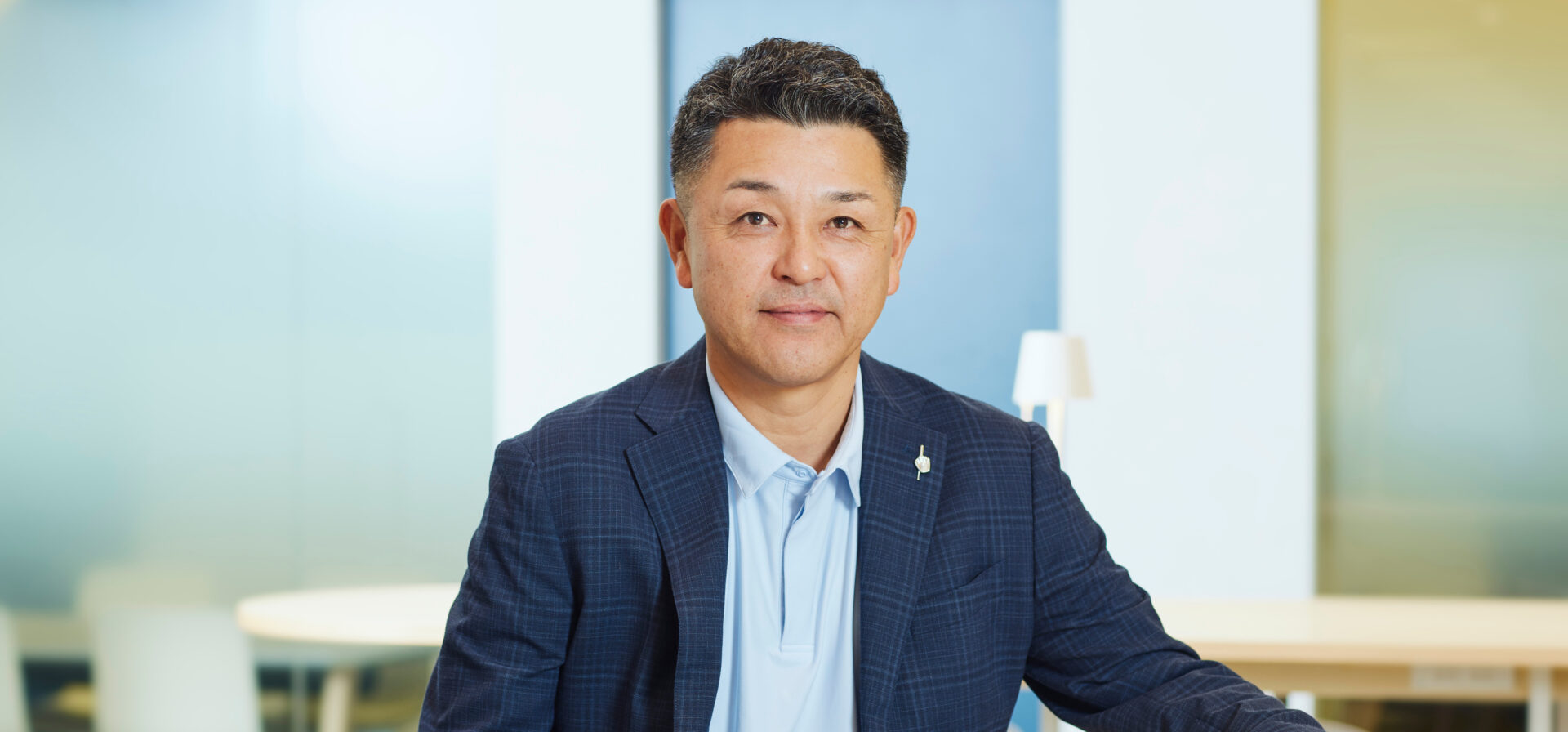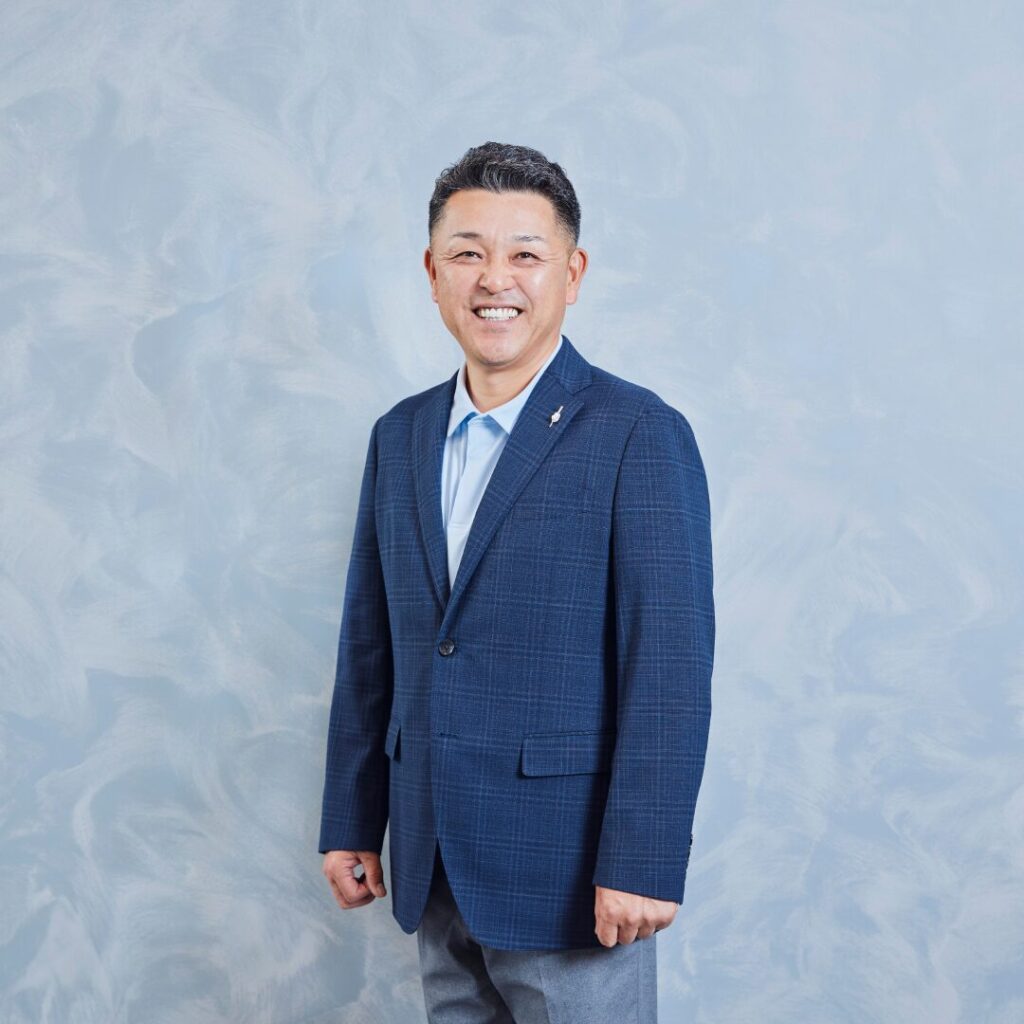[Former Pro Baseball Player Motonori Tanishige] Conditioning Techniques for a Stress-Free Life
2024.06.13
How do professionals who continue to challenge themselves in various fields such as sports, business, art, and culture approach their bodies and unleash their potential? We ask about the "conditioning" they practice in their lifestyles.
In this article, we interviewed former professional baseball player Motonori Tanishige about his maintenance methods and conditioning techniques.
*Conditioning, as defined by TENTIAL, is the act of optimizing all factors related to one's physical condition to improve life performance.
Being 'Energetic' is Essential for Everything
-- How conscious are you about conditioning (maintaining health) in your daily life?
First and foremost, I focus on staying 'energetic' for everything I do. To achieve this, I make sure to get proper sleep and not carry fatigue over to the next day. When you're sleepy, your body feels heavy and your thinking becomes dull.
Therefore, securing enough sleep time is my top priority.
-- What do you keep in mind to get quality sleep?
I don't like sleeping in hot places (laughs). You know how people warm up their rooms in winter? I'm not too fond of that either, so I gradually warm up under the blanket with my own body heat. That's the best way for me to fall asleep easily.
I'm somewhat particular about bedding, like finding the right pillow and mattress. I prefer slightly firmer mattresses. Currently, I don't stick to any specific brand, but I choose mattresses that don't sink too much.

The Secret to Staying Energetic is 'Diet'
-- Is there anything else you pay attention to in order to stay energetic?
It's diet. During my active career, when I was over 30, I followed a dietary regimen under a training coach's guidance for a while to build stamina and endurance.
However, after 2-3 years, I started feeling incredibly stressed and eventually quit. That's when I realized that eating what you want is the best approach.
Of course, I tried to maintain a balanced diet with fish and vegetables, not just meat. Thanks to this approach, my 'dietary stress' gradually disappeared.

During my active career, I was moving a lot and sweating plenty, so I never received any 'bad' results in health checkups.
However, right after retirement, I would go golfing in the morning, take a 30-40 minute nap after returning home, and then eat an entire bag of potato chips (laughs). Plus, I love ramen and was eating it about 5 times a week. After doing this for about a year, I failed my blood test spectacularly.
-- That's not surprising... (laughs).
After that, I banned potato chips and limited ramen to once a week at most. I also cut out rice at night, or switched to brown rice when I did eat it. I increased my vegetable intake and tried to avoid heavy meals. Gradually, my body started feeling lighter.
During my active career, I usually maintained a weight between 85 and 88 kilos, but now I'm barely 80 kilos. I've been maintaining that weight consistently.
I went to Okinawa this February. It was the last flight of the day, and I was hoping for some light meal service on the plane, but nothing came (laughs). When we arrived, I was extremely hungry, so despite it being past 11 PM, I ate Taiwanese maze-soba. The next day, my hands were completely swollen.
On the flip side, this made me realize that my usual diet management was actually having a real effect on my body.
-- Could you tell us more details about your meal menu?
Currently, I eat a lot of legumes. Also vegetables like broccoli, lettuce, and spinach. I like root vegetables too, so I actively consume lotus root and burdock root.
My family understands what I like to eat and prepares meals using these ingredients. For meat, they remove excess fat from pork and beef. While I've managed to control my snacking quite well, I've replaced them with beans and nuts.
I eat to about 70-80% fullness. If I eat more than that, I start feeling sick. During my active career, I used to go from yakiniku to okonomiyaki restaurants, or eat ramen after yakiniku, and still feel hungry.

-- What about alcohol?
I used to go out drinking a lot, but as my constitution changed due to fatigue and stress, I stopped going out so much once I started playing regularly in games. Now I never drink at home, and I only go out drinking once or twice a month, with heavy drinking maybe once every three months.
I know drinking makes me feel terrible the next day, and I hate that feeling. There's no need to make myself feel that bad just for alcohol. So I only drink when I have nothing the next day or when I don't mind feeling unwell. Or if I know I'm going drinking, I make sure to clear my schedule for the following day.
-- Do you still exercise after retiring from professional baseball?
Since failing that blood test, walking has become essential. I usually walk for about 1.5-2 hours daily, covering 7-8 kilometers, sometimes up to 10 kilometers.
I don't eat breakfast and usually have a combined breakfast-lunch around 11 AM, so I walk before that. In daily life, I also walk the full 18 holes when golfing without using a cart, and try to use stairs whenever possible at work.
About TENTIAL
-- Do you have any favorite gear or items that you use for conditioning?
I've tried various things (laughs). When I heard that drinking dairy products before bed was good, I tried probiotic drinks from different manufacturers, and I've also tried supplements that acquaintances were involved with.
But I can't stick to them. Our schedules aren't the same every day, so it's hard to establish a routine. Things that need to be taken daily often get forgotten or interrupted, and then I stop using them altogether. So I haven't really found 'the one' yet.
However, last year on my birthday (December 21), everyone at the office gave me TENTIAL's recovery wear 'BAKUNE,' and I've been wearing it almost every day since then. As I mentioned earlier, I've tried various bedding products myself, and I had actually researched and bought TENTIAL products before.
-- What are your impressions of 'BAKUNE'?
It's thinner and lighter than regular sweatwear, but it keeps you very warm when wearing it. As I mentioned, I found myself wearing it throughout this winter, so my body must have been happy with it.
While the effects aren't immediately visible with these kinds of products, the fact that I kept wearing it is the best evidence that my body was enjoying it.
I'm not fond of bedding with rough textures, but 'BAKUNE' is thin and has a soft feel. That's one of the reasons I like it. I'm also interested in TENTIAL's shorts and T-shirts (MIGARU Light Knit) for the upcoming season. They have socks too, right? Those, along with the other items, would be great for walking.

-- Listening to you, it seems like you prioritize 'how to avoid stress' in various aspects of your life.
That's right. My 27-year professional baseball career was 'full of stress,' and when I was released from that, I found myself thinking about 'what kind of life would be stress-free?'
After trying various things, I realized how nice it is to be stress-free. So I decided there's no need to deliberately feel stress going forward, and I started thinking about stress-free actions in everything I do.
-- When do you feel stress, and how do you think you can act without feeling stress?
During my active career, there were many times when I had to protect myself, and that was incredibly stressful. In the baseball world, there are aspects of yourself that you want to express but can't.
Of course, in other work too, like when having conversations like this, you feel stress when trying to hide parts of yourself. I don't want to do that anymore.
Of course, I'm not completely exposing everything now, but I try to be more of myself in my daily life. For a while after retirement, I thought 'I never want to do baseball again,' and even watching it was painful, but in the last couple of years, I've gradually reached a point where I can watch baseball without feeling stress.
That's probably because I've been trying to be more true to myself. By the way, my biggest stress relief now is watching movies quietly at home.
── Finally, please give a message to people who want to improve their conditioning and enrich their work and lifestyle.
I'm turning 54 this year, and I often think about 'how long can I continue working while pursuing hobbies like golf?' I feel like I can probably manage for about 20 more years.
In other words, I want to stay healthy until around 75. To achieve that, it's important to continue doing small things that are good for your body every day, without overdoing it.
For example, even doing 30 sit-ups a day is fine. Start by finding a health routine that works for you. Let's all do our best together.


Former Professional Baseball Player Motonori Tanishige
Born in Hiroshima Prefecture. Joined Taiyo (later Yokohama) in 1989. As a catcher, he contributed to Yokohama's first championship in 38 years in 1998. Transferred to Chunichi in 2002 and achieved a championship in 2007. Became player-manager in 2014 and retired as a player in 2015. Led the team until mid-2016. Set professional baseball records for total appearances and 2,963 games as a catcher, as well as home runs in 27 consecutive seasons.
Contact Us
For inquiries or consultations regarding our products, services, or media, please contact us here.


![[Model Rena Takeshita] “Quitting my job was not an option.” How I balance modeling and childcare without pushing myself too hard](https://pre-corp.tential.jp/wp-content/uploads/2024/03/takeshita_fv2-1-1.jpg)

![[Professional Baseball Player Tsuyoshi Wada] Secrets to Maintaining Health for the Longest Active Record](https://pre-corp.tential.jp/wp-content/uploads/2024/02/231208_tential49607-2.jpg)

![[Former professional baseball player Hirokazu Ibata] “Sleep” creates good performance! Sleep environment creation that I was particular about since I was an active player](https://pre-corp.tential.jp/wp-content/uploads/2024/05/①_TYT7107_TOP.jpg)
![[Actress Umika Kawashima] Gut health, warming activities, and moderate exercise. “Consistency” in small things leads to results](https://pre-corp.tential.jp/wp-content/uploads/2024/08/OGP_本番_川島海荷_1200×630-3.jpg)
![[Actor Rosa Kato] Because the Whole Family is Busy, those Rare Meals We Share around the Table Mean the Most](https://pre-corp.tential.jp/wp-content/uploads/2025/03/FV加藤ローサ_本番4402-3.jpg)
![[Female Shogi Player Manao Kagawa] “Shogi is an Endless Marathon” – What You Can Do Now for Conditioning](https://pre-corp.tential.jp/wp-content/uploads/2025/03/OGP_香川愛生_本番_1200×630.jpg)
![[Free Announcer Reina Sumi] Struggling with Childcare for the First Time! “What I Need most Right Now is Sleep.”](https://pre-corp.tential.jp/wp-content/uploads/2024/12/FV鷲見玲奈あたり_064.jpg)
![[Para Alpine Skier Momoka Muraoka] Harsh winter competition. Daily routines that maintain performance even during exhausting tours](https://pre-corp.tential.jp/wp-content/uploads/2024/11/FV_村岡桃佳_本番_2160×1008.jpg)
![[Artist Yuta Okuda] Sleep is the most important thing! What are his unique conditioning techniques for maintaining performance?](https://pre-corp.tential.jp/wp-content/uploads/2024/10/FV_奥田雄太_本番_2160×1008-1.jpg)